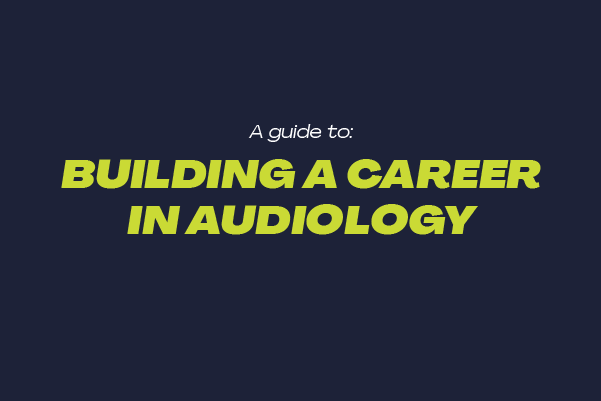Filter Job search
Read more audiology guides
Looking for more than just jobs? These guides are here to give you tips, advice, and insigths to help you make the most of your audiology career.
What is an Audiologist?
Audiologists use knowledge of their sector combined with practical skills to diagnose and treat hearing issues. With a large number of people in the UK suffering from trouble with their hearing, particularly elderly people, Audiology workers are a much-needed breed of healthcare professional.
Recent research has found that 16% of the UK population has significant hearing damage, and it is the job of an audiologist to use their practical and theoretical skills, as well as the technology available to them, to find the root of the problem.
The day-to-day tasks for an audiologist job include:
- Deciding on the best tests for a patient's hearing, factoring in age and condition
- Checking for any emotional, physical and mental factors that may affect a client's hearing
- Assessing which sort of hearing aid may be required
- Reviewing the progress of clients
- Fixing and repairing hearing aids
- Supporting patients who suffer from dual sensory loss or have any disabilities.
There are different specialisms within audiology designed to cater for patients of all ages and conditions. Each role has its own specific entry requirements:
Newborn Hearing Screener - Three GCSEs grade C or above, but either an NNEB, BTEC or NVQ in a childcare-related qualification may be of help.
Healthcare Science Practitioner -A degree in Healthcare Science (Audiology) and at least two A-Levels, one to include science.
Healthcare Scientist – Minimum 2:1 in relevant bachelor's degree, then specialising in a neurosensory science on an NHS Scientist Training Programme (STP).
Consultant Healthcare Scientist–Relevant experience through Higher Specialist Scientific Training (HSST) and a postgraduate qualification
Depending on the position, you may also need registration with the Health and Care Professions Council (HCPC) and the Registration Council for Clinical Physiologists (RCCP).
Your salary, again, depends on your audiologist job and is judged by the NHS Band payment scheme. As the need for these roles is so great, a locum audiologist position may be better suited to your current circumstances – and your future career.
What does an Audiologist earn?
Audiology jobs can differ in salary, depending on the band and experience of the audiologist. Audiologists are typically employed at Band 5, which pays approximately between £22k and £28k.
Locum Audiology jobs
The need for specialised healthcare professionals who can help and support those with hearing difficulties is evident, so locum audiologists will always be in demand within the NHS and private sector. For anyone currently in audiology jobs, moving into a locum role may be worth considering, as it allows you to gain great experience working in a variety of environments with a range of clients, conditions and ages. A locum audiology role would also entitle you to become your own boss and give you the flexibility to cater your workload around your lifestyle, an advantage a fixed contract may not offer.
However, while there are obvious benefits, there are some areas which may affect your decision to move into a locum audiology job. For example, you are not entitled to be entered into a workplace pension scheme, nor can you claim any holiday, sick or maternity pay.
As a locum podiatrist, you can select when and where you work to suit your needs. This means that you can fit work around your social life, as opposed to fitting your social life around work. If you’re someone who likes to explore new places, locums also have the freedom to work in different locations.

